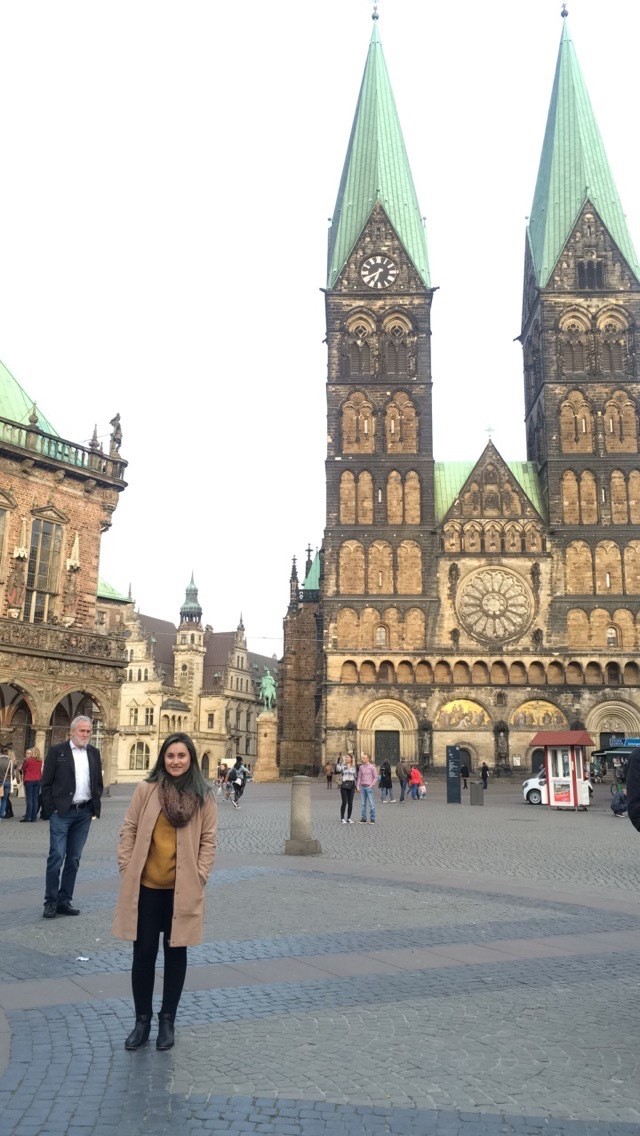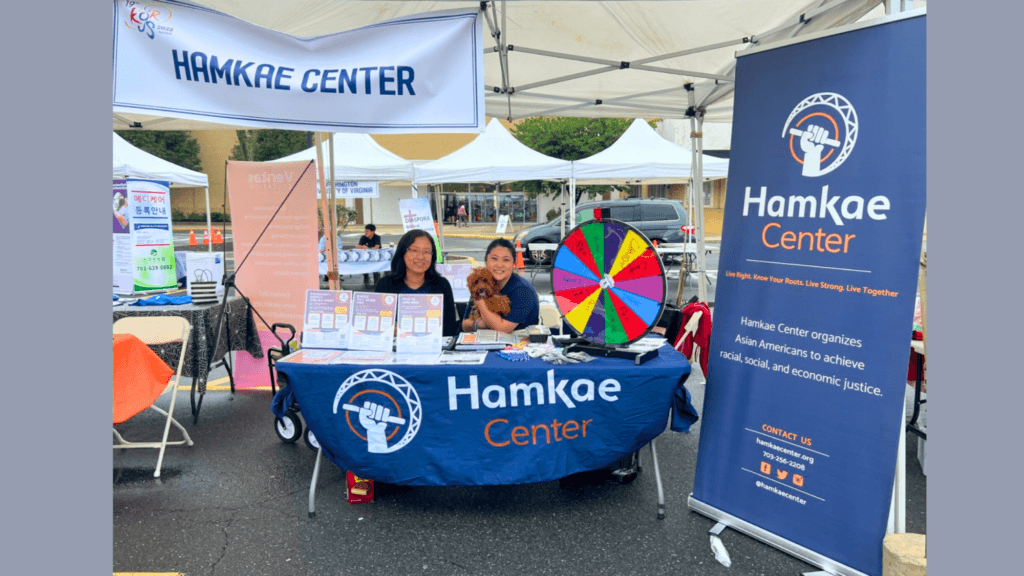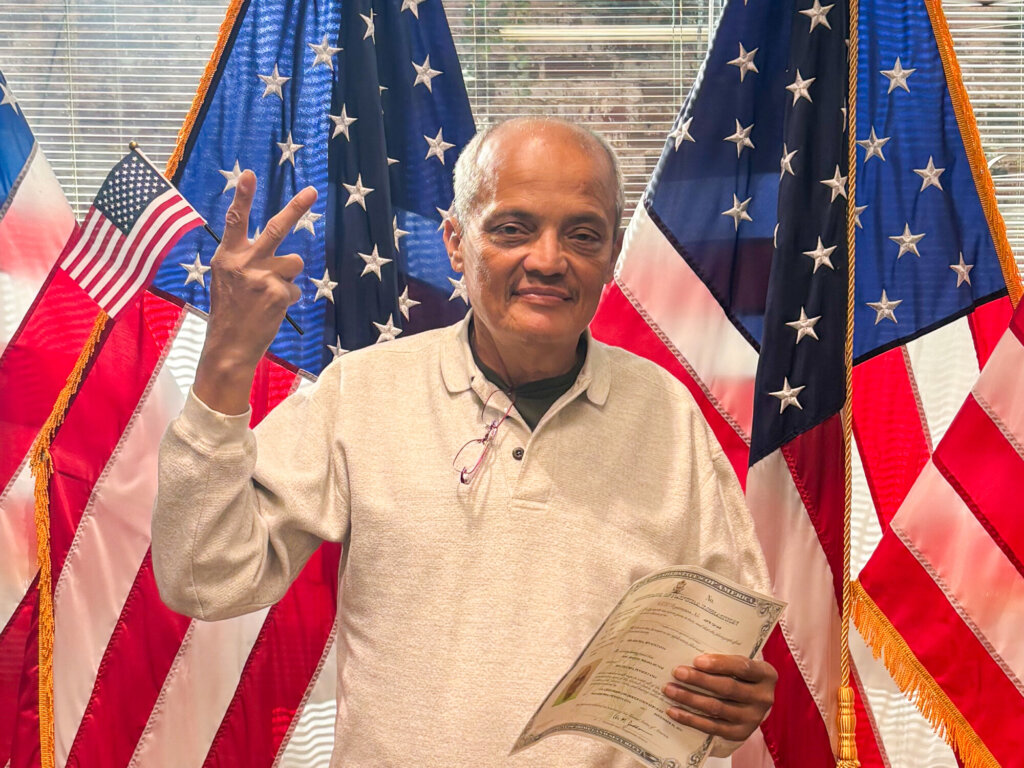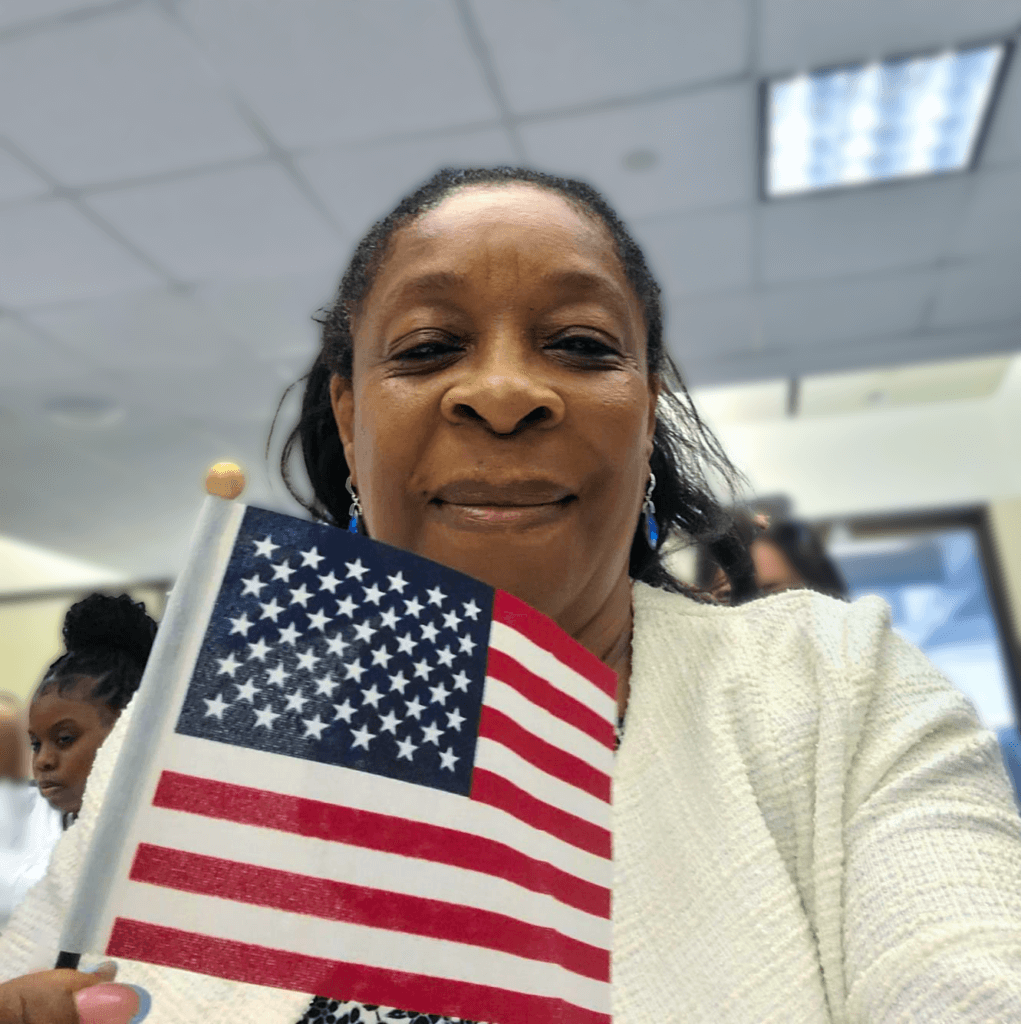Claudia Morales: The judge was an immigrant as well. Her story was very similar to mine.

Explore more
I am originally from Santiago, Chile, and I have lived in
the United States for almost 19 years. My mom had two siblings that were
already living in the United States and they convinced my parents to move here.
They thought there would be better opportunities for my sister and me. So after
my grandparents passed away, we moved to the United States. I was ten when we
arrived in 2001. A few months later, 9-11 happened. After that things got more
difficult for immigrants. But we stayed because we had sold everything back in
Chile, and we didn’t have anything there any more.
I had a green card and was eligible to become a citizen in
2016. But it wasn’t until 2018 that I decided to apply. I did a semester in
Germany for my bachelor’s degree. I went to Germany initially to study
translation and interpretation. But once I was over there and saw all the
refugees from Syria, and heard about their struggles, and I spent time with a
Syrian girl in my German class; it made me want to work on human rights. I’m
also interested in social work for refugees. I wanted to do my master’s degree
in Germany because they offer the program for free. And I thought with my green
card I could be outside of the U.S. temporarily to study. But a master’s
program takes two years and I learned that I might lose my green card if I
stayed out of the country for that long. So, before I applied, I decided I had
to return home and get my citizenship if I want to pursue my interests.
When I came back all the immigration issues were happening at the border, it was a really heavy time. I felt it was safer if I became a citizen. I still wanted to help immigrants, so I did some research online and looked up different organizations where I could volunteer. I came across the Mexican American Opportunity Foundation (MAOF) and I was very interested in the work they do. I work during the week as a receptionist, but I started volunteering with MAOF during the weekend when they have events and trainings. At that time, I began doing my own citizenship papers. I had done my residency papers, so I knew how to navigate the USCIS website and find the forms I needed to fill out. But ultimately it’s very hard to complete them without any help.
I knew that the Immigration Program Supervisor at MAOF knew
all about the application process because they are constantly helping people do
their citizenship forms. So I reached out to her and I asked if she could look
over my application to see if everything checked out. We met in person, and she
took time to look at everything. She explained different things that I had
filled out incorrectly, and other things that I needed to add. She basically
set up everything for me to send in my application packet. After that, the
process was quick. I had to memorize the 100 questions. It was a lot of
information to take in, and I was really nervous about my interview. I took the
civics test first. After I got that out of the way, it was more relaxing. The
USCIS interviewer then asked me a lot of questions and he was very observant of
everything in my application, but it wasn’t that bad.
(Photo courtesy of Claudia Morales)
I became a citizen last September. The oath ceremony was
very emotional. The judge was an immigrant as well, from Argentina, and she
told her story. “I’m here now,” she said. “And now that you are citizens you
can do more things. You can be more a part of the country.” As she was telling
her story, it was very similar to mine. She was getting emotional as she talked
about her parents and how they came here for her and her sibling—which is what
my parents did for my sister and me. Seeing how much she achieved, I also got
emotional thinking about what my parents did moving to a different country for
their kids. That’s really big!
Listening to the judge, I also thought about my future. For
a long time, I thought that with my residency papers I would be fine and I
never considered being a citizen. But now that I’m a citizen it opens so many
doors. After going through the whole process, I now think a lot about other
things that I can do. I have the right to vote. I can have a more involved
voice and be part of this country. When my American passport came, I think
that’s when I especially felt my life was different. I’m doing a lot of
research for studying abroad again and there are scholarship opportunities for
people from different parts of the world, and there are a lot open for students
coming from the United States. So I was really excited because now I can take
advantage of opportunities that weren’t available to me as a resident.
I still volunteer for the Mexican American Opportunity
Foundation. I think it’s a really great thing that they’re doing to help
people. Lawyers are really expensive and not everyone can afford them. They
hold events where people are able to get help for free. We help fill out their
citizenship applications and after there are lawyers to look them over. When we
moved here I was able to learn English in school, and I would translate for my
parents because they didn’t speak the language. Now I translate during the
workshops. I have such a good experience when I volunteer, my mom wanted to
come too. Last time, I helped people fill out their forms, and my mom helped
with photocopies and getting the envelopes ready so they can send their
packets. We both really enjoyed it.
Note to our readers: During the COVID-19 epidemic, the NAC is offering remote legal services instead of workshops. Please read more about the NAC’s remote naturalization assistance options here. You can also contact an organization near you for information about how to access their services during this period.



